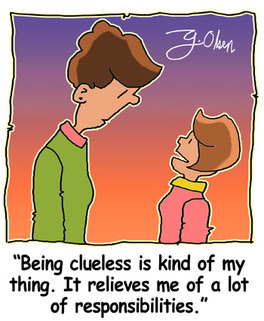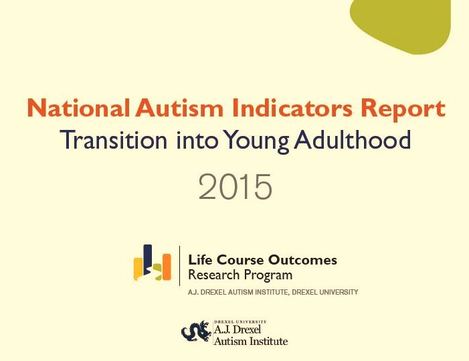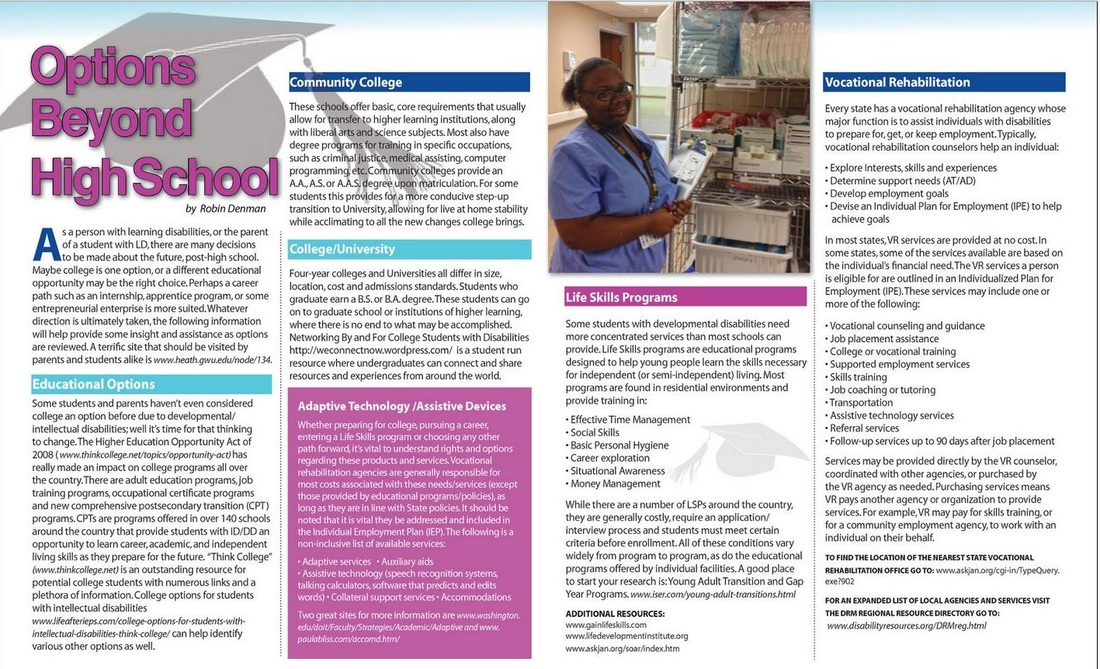|
10 Things You Should Know about ABLE Accounts
1. What is an ABLE account? ABLE Accounts, which are tax-advantaged savings accounts for individuals with disabilities and their families, will be created as a result of the passage of the Stephen Beck Jr., Achieving a Better Life Experience Act of 2014 or better known as the ABLE Act. https://www.congress.gov/bill/113th-congress/house-bill/647/text http://ablenrc.org/about/becoming-able-ready The beneficiary of the account is the account owner, and income earned by the accounts will not be taxed. Contributions to the account made by any person (the account beneficiary, family and friends) will be made using post-taxed dollars and will not be tax deductible, although some states may allow for state income tax deductions for contribution made to an ABLE account. 2. Why the need for ABLE accounts? Millions of individuals with disabilities and their families depend on a wide variety of public benefits for income, health care and food and housing assistance. Eligibility for these public benefits (SSI, SNAP, Medicaid) require meeting a means or resource test that limits eligibility to individuals to report more than $2,000 in cash savings, retirement funds and other items of significant value. To remain eligible for these public benefits, an individual must remain poor. For the first time in public policy, the ABLE Act recognizes the extra and significant costs of living with a disability. These include costs, related to raising a child with significant disabilities or a working age adult with disabilities, for accessible housing and transportation, personal assistance services, assistive technology and health care not covered by insurance, Medicaid or Medicare. For the first time, eligible individuals and their families will be allowed to establish ABLE savings accounts that will not affect their eligibility for SSI, Medicaid and other public benefits. The legislation explains further that an ABLE account will, with private savings, “secure funding for disability-related expenses on behalf of designated beneficiaries with disabilities that will supplement, but not supplant, benefits provided through private insurance, Medicaid, SSI, the beneficiary’s employment and other sources.” 3. Am I eligible for an ABLE account? The ABLE Act limits eligibility to individuals with significant disabilities with an age of onset of disability before turning 26 years of age. If you meet this age criteria and are also receiving benefits already under SSI and/or SSDI, you are automatically eligible to establish an ABLE account. If you are not a recipient of SSI and/or SSDI, but still meet the age of onset disability requirement, you could still be eligible to open an ABLE account if you meet Social Security’s definition and criteria regarding significant functional limitations and receive a letter of certification from a licensed physician. You need not be under the age of 26 to be eligible for an ABLE account. You could be over the age of 26, but must have had an age of onset before the individual’s 26 birthday.
0 Comments
 1. What are some things you feel you do well? Think about the talents you already know you have, and ask friends and family what they think you’re good at. You might be surprised by what they say. 2. What challenges you? The things that challenge you might be opportunities to improve and move toward your goals — and they might suggest areas of study and work that will keep you interested long into the future. 3. What do you like to do for fun? Think about the reasons you enjoy your favorite activities, the things they have in common and the strengths they bring out in you. 4. Who do you look up to? The people you admire — whether they’re celebrities, historical figures or people you know personally — can tell you something about who you are and what you value. Consider what it is about them you like and whether those qualities are worth reaching for. 5. What’s something you’ve always wanted to try? Consider your reasons for wanting to do this — and why it is you haven’t done this yet. Do you find it exciting? What do you expect to get out of it? 6. What accomplishment has made you most proud? Your answer might have nothing to do with a hard-won A or a trophy — it might be the time you stuck up for someone who needed your help. What you’re proud of can help you see what matters most to you. 7. What’s your favorite class? Don’t limit yourself to the subjects that come easiest to you. Think about which classes make you lose track of time. Is it the teacher or the subject matter that holds your interest? 8. What do you read about in your free time? The kinds of stories you follow in the news, your favorite books and websites — these can help you figure out what really makes you curious. 9. If you could do any job for a day, what would it be? Think about which careers you want to try on. What is it about them you find so appealing? What would you change to make them fit you better? 10. As a kid, what did you want to be when you grew up? Even if your childhood dreams seem silly now, remembering them may show you what’s always been important to you. The National Autism Indicators Report is a publication series produced by the AJ Drexel Autism Institute's Life Course Outcomes Research Program. The inaugural volume of this report focuses on the transition into young adulthood. We present evidence about a wide range of experiences and outcomes of young adults on the autism spectrum between high school and their early 20s. This report describes the prevalence of a wide variety of indicators related to transition planning, services access, unmet needs, employment, postsecondary education, living arrangements, social participation, and safety and risk.
As a person with learning disabilities, or the parent of a student with LD, there are many decisions to be made about the future, post-high school. Maybe college is one option, or a different educational opportunity may be the right choice. Perhaps a career path such as an internship, apprentice program, or some entrepreneurial enterprise is more suited. Whatever direction is ultimately taken, the following information will help provide some insight and assistance as options are reviewed.
|
Disclaimer: This website is for informational and educational purposes.
Any and all blog content represents a synthesis of empirical information found on the internet, of my own personal opinions, and my professional experiences. Nothing posted reflects or should be considered professional advice. Interaction with me via the blog does not constitute a professional or therapeutic relationship. For professional and customized advice, you should seek the services of a licensed mental healthcare professional. I do not assume liability for any portion or content of material on the blog and accept no liability for damage or injury resulting from your decision to interact with the website. Archives
October 2023
Categories
All
|


